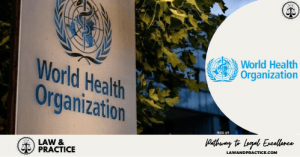
The second meeting of the Emergency Committee convened by the WHO Director-General under the International Health Regulations (IHR) (2005) regarding the outbreak of novel coronavirus 2019-nCoV in the People’s Republic of China, with exportations to other countries, took place on Thursday, 30 January 2020, from 13:30 to 18:35 Geneva time (CEST). The Committee’s role is to give advice to the Director-General, who makes the final decision on the determination of a Public Health Emergency of International Concern (PHEIC). The Committee also provides public health advice or suggests formal Temporary Recommendations as appropriate.
Last week, the organization said the virus did not yet constitute the emergency declaration. But with rising numbers and evidence of person-to-person transmission in a handful of cases outside of China, WHO leadership called the committee back together over concerns of a larger outbreak down the line.
“The main reason for this declaration is not because of what is happening in China, but because of what is happening in other countries,” WHO Director-General Tedros Adhanom Ghebreyesus said on Thursday. “Our greatest concern is the potential for the virus to spread to countries with weaker health systems, and which are ill-prepared to deal with it.”
WHO defines a public health emergency of international concern as “an extraordinary event” that constitutes a “public health risk to other States through the international spread of disease” and “to potentially require a coordinated international response.” Previous emergencies have included Ebola, Zika and H1N1.
Committee chairman Dr. Didier Houssin said the decision to recommend the declaration to WHO leadership was almost unanimous — citing a growing number of cases in China, an increase in the number of countries impacted, and that “some countries have taken questionable measures concerning travelers.”



